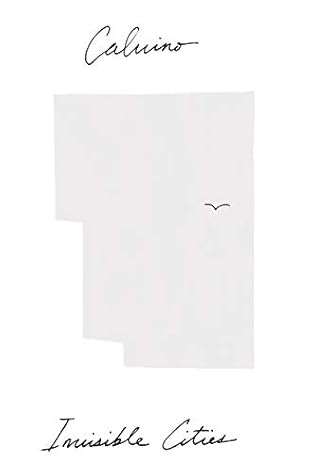More on this book
Community
Kindle Notes & Highlights
He was thinking of all these things when he desired a city. Isidora, therefore, is the city of his dreams: with one difference. The dreamed-of city contained him as a young man; he arrives at Isidora in his old age.
Desires are already memories.
the more one was lost in unfamiliar quarters of distant cities, the more one understood the other cities he had crossed to arrive there; and he retraced the stages of his journeys, and he came to know the port from which he had set sail, and the familiar places of his youth, and the surroundings of home,
All this so that Marco Polo could explain or imagine explaining or be imagined explaining or succeed finally in explaining to himself that what he sought was always something lying ahead, and even if it was a matter of the past it was a past that changed gradually as he advanced on his journey, because the traveler’s past changes according to the route he has followed: not the immediate past, that is, to which each day that goes by adds a day, but the more remote past. Arriving at each new city, the traveler finds again a past of his that he did not know he had: the foreignness of what you no
...more
Futures not achieved are only branches of the past: dead branches.
What line separates the inside from the outside, the rumble of wheels from the howl of wolves?
Cities, like dreams, are made of desires and fears, even if the thread of their discourse is secret, their rules are absurd, their perspectives deceitful, and everything conceals something else.”
“Yes, the empire is sick, and, what is worse, it is trying to become accustomed to its sores. This is the aim of my explorations: examining the traces of happiness still to be glimpsed, I gauge its short supply. If you want to know how much darkness there is around you, you must sharpen your eyes, peering at the faint lights in the distance.”
“You reach a moment in life when, among the people you have known, the dead outnumber the living. And the mind refuses to accept more faces, more expressions: on every new face you encounter, it prints the old forms, for each one it finds the most suitable mask.”
POLO: Perhaps all that is left of the world is a wasteland covered with rubbish heaps, and the hanging garden of the Great Khan’s palace. It is our eyelids that separate them, but we cannot know which is inside and which outside.
For those who pass it without entering, the city is one thing; it is another for those who are trapped by it and never leave. There is the city where you arrive for the first time; and there is another city which you leave never to return. Each deserves a different name;
“The inferno of the living is not something that will be; if there is one, it is what is already here, the inferno where we live every day, that we form by being together. There are two ways to escape suffering it. The first is easy for many: accept the inferno and become such a part of it that you can no longer see it. The second is risky and demands constant vigilance and apprehension: seek and learn to recognize who and what, in the midst of the inferno, are not inferno, then make them endure, give them space.”


